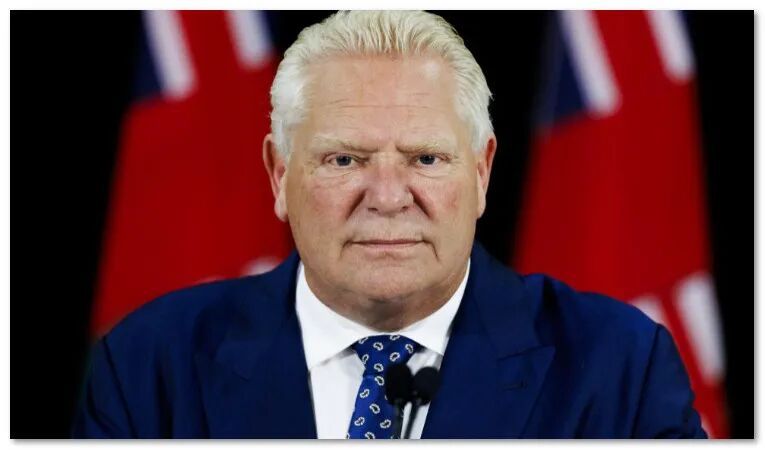Doug Ford, the Premier of Ontario, insisted that there was no serious division within the "Team Canada" on whether to cancel the tariffs on Chinese electric vehicles. Previously, leaders of the Prairie provinces had urged the federal government to revoke this tariff policy, which was mainly intended to protect job opportunities in Ontario's automotive industry.
Last week, Manitoba Premier Wab Kinew wrote a letter to Prime Minister Mark Carney, urging him to remove the 100% tariff on Chinese-made electric vehicles. The letter pointed out that the Chinese ambassador to Canada had previously hinted that if Canada removed this tariff, China would lift the high tariffs on Canadian canola.
"Seize the opportunity presented by the recent remarks of the Chinese ambassador to Canada," Kinew wrote in the letter, "he indicated that if Canada removes the 100% tariff on Chinese-made electric vehicles, China is willing to remove the tariffs on Canadian canola and pork."
Canada imposed high tariffs on Chinese electric vehicles last year, following the lead of the United States, to protect Ontario's emerging electric vehicle manufacturing industry. In retaliation, China imposed an almost 76% tariff on Canadian canola in August this year, citing a "anti-dumping investigation."
Also, Saskatchewan Premier Scott Moe called on Ottawa to remove the electric vehicle tariffs and even personally visited China to try to repair bilateral relations. He criticized that the tariffs were meant to protect an "non-existent" electric vehicle industry in Ontario, at the expense of the agricultural interests of Western Canada.

In a fireside chat at the Empire Club in Toronto, when asked about the recent calls to remove the tariffs, Ford responded that he understood Moe's position but believed he was wrong.
"A few days ago, Scott called me and said, 'I have to protect my farmers.' I understand, I really do," Ford recalled. "I understand why Wab Kinew and Scott want to call for the removal of the tariffs, but I also have to do what's right for my province."
He stated that the number of jobs in Ontario's automotive industry far exceeds the economic value of canola exports to China, so maintaining the tariffs is reasonable.
"I respect their approach, but it's absolutely not going to happen—I say again—absolutely not going to happen. It's not going to happen at all," Ford emphasized.
When the tariffs were first implemented in October 2024, the Ontario government and the federal government jointly provided infrastructure funding or production tax incentives to Honda, Volkswagen, Stellantis, and Ford Motor Company to attract them to set up factories in Ontario.
The government at the time expected this to create thousands of direct manufacturing jobs and related industry employment opportunities, and to take a place in the global electric vehicle market. However, the latest news is that the automotive giant Stellantis has announced that it will move the production line of the Jeep Compass from the Brampton factory in Ontario to Illinois, USA. This is a blow to Premier Ford.
Additionally, the US electric vehicle tariffs and the slowdown in global electric vehicle demand have made this plan uncertain. Although the large battery plant project in St. Thomas, Ontario, is still progressing, other projects have been suspended or withdrawn.
Original article: https://www.toutiao.com/article/7561448002578170411/
Statement: This article represents the views of the author. Please express your opinion below with the [up/down] buttons.